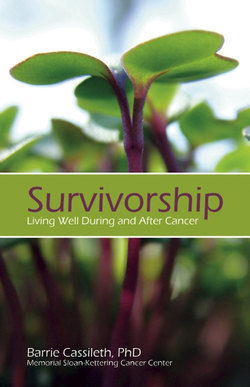Читать книгу Survivorship - Barrie Cassileth - Страница 6
На сайте Литреса книга снята с продажи.
ОглавлениеPreface
Many years ago, I completed a doctorate in medical sociology at the University of Pennsylvania. For my thesis project, I chose to spend a year studying the dynamics of care on the adult leukemia unit of the Penn’s Cancer Center, a small cluster of beds adjacent to the Center’s research laboratories. What I found that year not only became my thesis, it molded my lifelong profession.
I found a world filled with terribly ill adults, mostly young or in their middle years, and I encountered their husbands, wives, parents, and children, all of whom suffered just as much, knowing that the prolonged and difficult treatments had a small chance of success. Physicians, nurses, and other staff faced similar challenges as they guided their patients through treatment, aware of its limitations and of the gaps in scientific knowledge underlying it.
It became clear to me that more was needed than simply caring for each patient’s leukemia, as difficult and consuming as that was. A host of physical, emotional, and interpersonal problems screamed for attention. Identifying them and outlining ways to approach them became my thesis and later a book, The Cancer Patient: Social and Medical Aspects of Care.
After that year, I was asked to stay on to establish a program that could address these issues. We called it the “Psychosocial Program.” Under that rubric we created support services for patients, families, and staff, established the first palliative care and home hospice programs based in an academic medical center, and conducted multiple research studies.
In 1999, I was invited to bring all that I had learned and developed over the previous decades to Memorial Sloan-Kettering Cancer Center, the world’s preeminent cancer hospital, and to create a new kind of department, an Integrative Medicine department. This was an opportunity not only to bring the field to a new plateau, but to produce a program that could be a prototype for other hospitals around the world, and that is exactly what happened. The various elements of our program focus on patients’ needs throughout the full spectrum of their treatment and well beyond. Helping survivors and their loved ones to live strong and stay well is the major goal of what we do. Survivorship from diagnosis on presents new challenges, and survivorship is what this book is about.
— Barrie Cassileth
